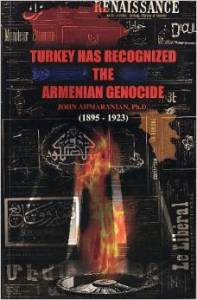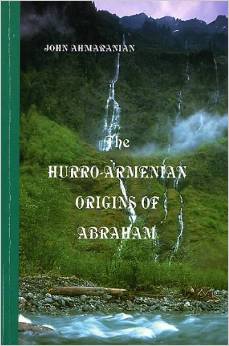Հայ թարգմանիչները, օգտագործելով հայերէն բա-ռերու ճոխ պաշարը, կարողացան Աստուածաշուն-չին թարգմանութիւնը բնագրի մակարդակին հաս-ցնել:
Ահա՛ հայերէն բառամթերքի գործածութեեան իւ-րայատուկ ճոխութիւնն ու տեղեցկութիւնը:
Խնդրել = բայը անհատներու միջեւ գործածուած է (to ask)-ի իմաստով: Օրինակի համար՝ «Յովսէփ Արիմաթացին Պիղատոսէն Յիսուսին մարմինը խնդրեց»: Բայց Աստուծոյ ուղուած «խնդրել» բայը երբե’ք չէ գործածուած անհատական բան մը ու-զելու: Օրինակ՝ երբ աղօթող մը առողջութիւն, յա-ջողութիւն, երկար կեանք, անձնական հարցի լու-ծում… կը խնդրէ, գրաբարին մէջ «խնդրել» բային տեղ ուրիշ բայեր գործածուած են զորս քիչ յետոյ պիտի տեսնենք: Երբ Խնդրել բայը գործածուած է Աստուծոյ հետ, գործածուած է միայն Աստուծոյ համար: Օրինակ՝ «Զերեսս քո, Տէր, խնդրեցի»:
Կը կրկնեմ. «խնդրել»ու գործածութիւնը Աստուծոյ անձին, փառքին, անունին… համար է: Այլ խօսքով, Աստուածն է որեւէ խնդրանքին թիրախը: Իսկ մեր թարգմանիչները ի՞նչ բառեր գործածեցին երբ ան-հատները իրենց համար բան մը ուզեցին Աստու-ծմէ:
Տեսնենք հայերէն բառերուն ճոխութիւնը, անոնց գեղեցիկ իմաստն ու նրբութիւնը:
Աղերսել = Հոմանիշ է խնդրել բառին, հետեւեալ տարբերութեամբ՝ խնդրելը շեշտել, կրկնել:
Երեմիա մարգարէէն կը մէջբերեմ երկու համարներ ուր «աղերս»-ը գործածուած է, բայց անգլերէնի նոյն տպա-գրուած Աստուածաշունչի մէջ երկու տարբեր բառերով թարգմանուած է: Երեմ. 12:1
«Արդար ես դու, Տէր, եւ մատուցից առաջի քո աղերս»: …When I bring a case before you. Երեմ. 20:12
«Զի առ քեզ յայտնեցի զաղերս իմ»:
I have committed my cause.
Աղաչել = Լալագին խնդրել. «աղի+աչք» ով:
Լատիներէնի մէջ՝ Rogo, peto:
Հետեւեալ բոլոր համարներու մէջ գործածած է «ա-ղաչել»ը: Նայեցէ՛ք թէ որքան անհետեւողական է նոյն հրատարակութեամբ անգլերէնով թարգմանուած «ա-ղաչել» բայը:
Հետեւեալ բոլոր ընդգծուած անգլերէն բառերը հա-յերէնի մէջ աղաչել են:
- “ Isaac prayed to the Lord…” Ծննդ. 19:7
- “ A poor man pleads for mercy…” Առակ. 18:23
- “ We have not sought the favor…” Դան. 9:13
- “ A man with leprosy… on his knees begged Jesus” Մարկ. 1:40
- “He fell with his face to the ground and begged him” Ղուկ. 5:12
- “ He felt at his feet and pleaded earnestly with him” Մարկ. 5:23
Պաղատիլ = Յաճախակի խնդրել:
Լատիներէն՝ oro (աղօթել), supplier.
յունարէն՝ Δεομαι
«Եղիցին բանքս իմ այսորիկ որով պաղատեցայ առաջի Տեառն Աստուծոյ մերոյ՝ մերձենալ առ տէր Աստուած մեր ի տուէ եւ ի գիշերի» (Գ. Թագ.8:59):
Աղաչել-ը անգլերէնի մէջ prayed թարգմանուած է:
«Եթէ մեղիցեն քեզ… եւ պաղատեցին առաջի քո… (Բ. Մնաց. 6:24):
Անգերէնի մէջ թարգմանուած է paying supplication before you.
Թախանձել = ձանձրացնելու աստիճան աղաչել: Լատիներէն՝ Turbo, perturbo.
«Թախանձել» բային անգլերէն թարգմանութիւնը ան-հետեւողական է: Օրինակ՝
- Դատ. 14:17 -ի մէջ՝ She continued to press him.
- Յոբ 16:3 -ի մէջ՝ What ails you that you keep on arguing.
- Ղուկ.18:4-ի մէջ՝ …wear me out.
Ողոգել = Համոզելու եւ մէկու մը սիրտը առնելու միտումով՝ աղաչել:
Հայցել = Փնտռելու, գտնելու, այցի հրաւէրի մի-տումով՝ աղաչել: Լատիներէն՝ precor :
Արմատը “հ + այց” է:
Այս բառը աւելի գործածուած է Մաշտոցի եւ շարա-կաններու մէջ՝ (Ի քէն հայցեմք…, Հայցեմք ի քէն, Տէր բարեգութ…):


